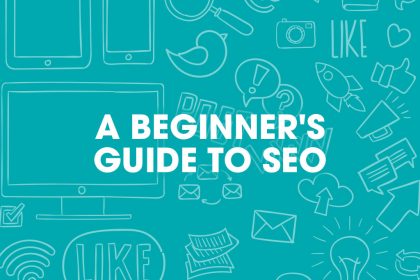Four things all businesses need to do for good SEO
There is a misconception that SEO is complicated and beyond the understanding of small business owners. And it can feel that way when you listen to some people speak about it.
But good SEO is much simpler than you may think, and more accessible for small businesses than many realise. You just need to understand the basics of SEO and do four important things.
How does SEO work?
Before we get into the four things you need for good SEO, it is important to understand how SEO works.
The search engines, like Google, who decide where your web pages rank on their search engine results pages (SERPs), have an agenda.
And that agenda is easy: to make sure that when we put a query into the search bar, we get the best possible results for it. If we don’t, then we will stop using that search engine, and the company behind it will lose business.
This simple realisation that SEO consulting comes back to this one principle makes SEO feel much more human. Because behind all the seemingly complex algorithms is a very relatable motivation: to give the best service so your business succeeds.
When you know what search engines like Google want, it is much easier to create content that fits their agenda and is more likely to rank for SEO.
Now we know that, we can explore four things you need to do to help search engines decide that your web page is the best result for a search term. As Google is the biggest search engine, with 92.18% of the worldwide search engine market share, we will focus on them in this article.
1) You need to have a website that is user-friendly
The first thing you need to do its make sure your website is user-friendly. Google doesn’t want to direct people to websites that are difficult to use, not matter how great the content on them is.
So make sure you cover off some of the important basics of SEO on your website. These include:
- Ensuring your website is optimised for mobile
- Checking your download speed (if it is too slow you’ll be penalised)
- Making sure that your content actually delivers what your headlines promise
- Writing content for humans, not to try to dupe SEO bots
- Fix any 404 error pages
2) You need to use the right keywords
When search engines like Google rank websites, they look for clues on your site that you are the best fit for a search term. And these clues are keywords. Google looks for specific words or terms that tell it a web page answers the question that someone’s search term asks.
For example, if someone is searching for “children’s shoe shops in London” Google will look for pages with those keywords. So when writing individual web pages, you need to think about what search term you want it to rank for, and therefore what keywords it has to contain.
And here is a quick tip: don’t worry about trying to compete for short keywords such as ‘shoe shop’. They are too vague to deliver the perfect traffic for your site, and too competitive to even consider reaching page one of Google.
Instead think of long tail keywords that fewer people may search for, but are much more specific to what you do. So you know that the people who do find your website are more likely to want your products or services. They are also much easier to reach page one of Google for too.
3) You need backlinks from the right websites
We know that search engines like Google look for keywords to tell them that a particular web page is relevant for a specific search term. But how can they trust that YOUR website is reputable?
What if your information is wrong? What if you just want to lure people to your site to trick them? To make sure that Google sends people to web pages that actually help people, they look for signals in the form of backlinks.
A backlink is a link to your website from another website, and in SEO terms it is treated as a form of recommendation. As in, the site linking to yours is, in effect, recommending your website. That tells Google that your site might be trustworthy and actually contain valuable information.
Like all recommendations, the person (or in this case the website) recommending you matters. The more trustworthy the website linking to you is, the more valuable that backlink becomes for SEO. And that is where things like domain authority come in. The higher the domain authority of the site linking to you, the more their link counts for SEO.
Relevancy also matters. So a link to a children’s shoe shop in London from a blog about choosing the right shoes on a chiropodist’s website is more valuable than a link from a blog about ice creams on a recipe site. This is why it is important to build your backlinks, and always from the right websites.
There’s one more thing you need to remember about backlinks: they don’t last forever. Backlinks can age and disappear. Websites linking to you can fall down Google’s rankings, or blogs linking to you can disappear.
This is why the final thing you need for SEO is so important.
4) You need a monthly SEO plan
As just mentioned, you can’t rely on backlinks you gain helping you forever. So you need to be continually working on your SEO. But there’s another reason why you need a monthly SEO plan. This relates to the final way Google assesses whether to link to a site. And that is recency.
Let’s say you build a brilliant website for your children’s shoe shop in London and it reaches the number one spot on Google. Dozens of people use Google every month to find and visit your store as a result.
But then you decide to close down your shop. Or you stop selling children’s shoes and switch to adult shoes instead. If Google continues to rank you at number one for children’s shoe shops in Worthing then it giving people the wrong information. And we know that is not what it wants to happen.
So how can Google tell if you are still in business? Or still do what you used to? It does this by checking that your site is regularly updated. And that the updates still reflect the keywords it is ranking you for. If you don’t do this, you risk losing your place in your Google rankings.
How to grow your SEO every month
This is why SEO is not a once-and-done activity. Instead it is something you need to work on every month. But that’s not to say you need to spend days on it each month. Just a few simple activities can help maintain your ranking and even push your web pages up Google’s SERPs.
Here are some suggestions for monthly activities that can help your SEO:
- Publish new content, such as a blog or a news story.
- Reach out to new websites to grow your backlinks
- Check for any new search terms you may want to rank for
- Keep any web pages that perform well for SEO refreshed
Hopefully you will now feel more confident about tackling SEO for your website and have some activities that will help you attract more organic web traffic.
Love our help to climb the Google rankings?
Luckily, as search traffic has grown, so has the number of search terms people are looking for – and your opportunities to rank. So it’s easier than you may think to hit page one of Google… as long as you have a strategy!
And that’s exactly what we show you in both our SEO Masterclass and Easy SEO. So if you have a business website and aren’t yet confident you are using SEO properly and getting the most out of it, I recommend joining one of these.
Here’s how to work out which one is best for you now:
- Buy our SEO Masterclass if you are a complete beginner and want an easy explanation of how SEO works and want DIY practical advice you can use immediately. (Click on the link for a special, time-limited offer if you buy now.)
- Buy Easy SEO if you are a beginner, or have some SEO knowledge but don’t know how to put it together to do SEO well. Easy SEO walks you through everything you need to know and do for SEO in easy steps.
It’s the easiest (and cheapest) way to do your SEO and help your website to hit that all-important spot on page on of Google for the right search terms.
So if you’re ready to plan your SEO strategy, come and join us inside Easy SEO and get started right now.
Photo by Alizée Baudez










